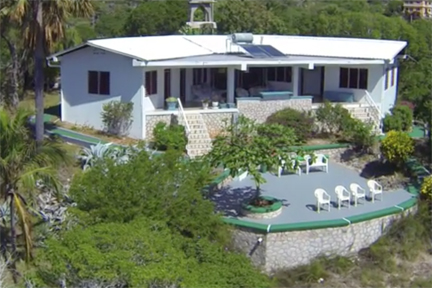Published in the Zimbell House anthology November Falls in November 2018
The last time Arnie had been in November Falls, Mama was in the early stages. She twice in ten days drove to what passed for a supermarket in this tired town, did her shopping, then couldn’t remember how to start home. The first time, Constable Charlie Finnegan, the town’s only remaining cop, noticed her standing by the car looking perplexed, and escorted her home. The second time she went back inside the store to ask for help, and they phoned him to do it again.
That was three years ago. The bank had given Arnie a month’s R&R from his Buenos Aires posting, and he spent half of it with Mama. He’d been home only two days when she was escorted back the first time, and was out of the house on some errand. She didn’t mention it when he got back. The second time, Charlie Finnegan saw the rental car in the drive, figured it must be Arnie, and came in to tell him what was happening.
Arnie called his sister Edna, who came down from Lake George. In a long conversation, they persuaded Mama that the time had come for her to give up driving. It helped that they could assure her that she could certainly stay in the house – for the time being, they said to each other but not to her.
Sis promised to come once a week to take her shopping, and said she’d find someone to take her to the Wednesday afternoon ladies’ book club at Wendy Carpenter’s house. Mama reluctantly agreed to let them sell the car. Buck Alvord had long since abandoned his Ford dealership, the last car showroom in town, but he was still a salesman down in Glens Falls. The car was ten years old, had almost no miles on it. After the dealership closed, Mama had taken it periodically to Pete Clark’s service station for oil and the like, so it was in good shape. Sis wrote later that Buck gave her a decent price.
There’s something to be said for small towns that time has passed by, Arnie mused. He and Sis had gone to school with Charlie and Buck and Pete, back when the town could still justify having its own high school. Mama had taught history to all of them, and Papa taught them all to play baseball, including Sis. November Falls High was district baseball champion four times under Papa, and Sis was property manager.
Arnie had felt only a twinge of guilt flying back to Argentina. Sis was less than a half-hour away, and he was leaving her, for a time at least, only a minor burden. Her responsibilities would grow, of course – and as it turned out, would grow sooner than they’d expected. She and Drew Hutton, the bank manager, soon persuaded Mama to give Sis joint authority over her accounts. Good thing: A year later the bank closed, absorbed by a bigger bank in Glens Falls. Sis could do the banking on the way from her Lake George home to November Falls.
Little more than a year after that, he and Sis talked by Skype when she decided that Mama couldn’t live alone any more, and should be moved to a nursing home specializing in dementia. Arnie approved, and had his bank transfer funds to Mama’s account, to be sure Sis would have enough to cover unforeseen needs.
Good thing: It quickly became apparent that Mama’s house, the one they’d grown up in, wasn’t going to sell right away, and they’d have to pay Tommy Barnes to mow the lawn, keep the house heated enough that it wouldn’t freeze up, and chase out an occasional varmint. Tommy had long been the town drunk, albeit his toots were widely spaced and unthreatening. By now he earned his liquor by performing custodial duties for a dozen houses that Helen Granville had on the market but wasn’t selling.
Now, after three years away, Arnie was back in town on R&R again, planning to spend only a week this time, most of it with Mama. Sis had warned him: It would be a jolt to see first-hand that time was passing Mama by as surely as it was leaving November Falls behind.
For starters, she was now living in the high school where she’d taught for most of her adult life.
In its time – Civil War time, say — the town had bustled. The headwaters of the Hudson River tumbled out of the Adirondacks steeply enough that colonials built dams to harness the energy of falling water. Glens Falls milled grain; Hudson Falls had machine shops. November Falls (legend had it named by a trapper who found it, a half-frozen natural cascade, at the onset of winter) was too deep into the forest to be a granary town, but was perfectly situated to support a sawmill. Appropriate, everyone said, because Adirondack meant “tree eater” in the Mohawk tongue.
Arnie always loved the drive north from the Albany airport. The broad floodplain farm fields of the Hudson shrank to narrow strips of flatland flanking diminished tributaries; conifer and hardwood ridges lined narrowing valleys. Papa taught him to hunt on hardscrabble farms like these, the farmers glad to have someone take .22-calibre rifle practice with their woodchuck pests as targets.
This week’s trip, in early October, was a feast of color, a reminder that it was deer season. Papa had graduated him to hunting in the hills behind those farms, always insisting they were out for venison and not just for pleasure. Charlie, Buck and Pete became hunters, too; it was part of their bonding, a union not only to each other but to the land, the zeitgeist of the Adirondacks, and the nature-savvy skills of the Mohawks. They learned to stalk well enough to get close to a buck with a good rack and dispatch it with a shotgun, since New York didn’t allow the .30-30 Winchester Arnie would later learn to hunt with on college-pal outings in the California High Sierra.
Even after Adirondack State Park was established in 1892, business continued for a while to be good in November Falls: There was a lot of timber outside the boundaries, and in the early years the park police were too few to pay attention to a few poached trees from inside. There was even a period during World War II when some selective harvesting from the park was encouraged to help the war effort.
Postwar, it all fell apart. A few years of drought left November Falls parched, its mill silent. The downstream dams, fed in part by larger tributaries, still had water enough that new sawmills sprang up there, with far more efficient machinery. Those towns prospered, and folks began moving downstream in search of work and stability. Within a few decades, November Falls had to contract for seats in Corinth to educate a dramatically smaller high school cohort. Papa didn’t live to see that day. Just as well: It would have killed him. Mama didn’t mind retiring a few years early; she had more time to read, although the Carnegie Library, pride of the town, was closed four days a week.
The YMCA had to close its pool, which had long accommodated both boys and girls on weekends. The town’s only fast-food franchise, McDonald’s, closed soon thereafter, as did Footprints, the only retail outlet specializing in shoes.
Up in Lake George, where Sis and her then-new husband had gone to live, a new wave of tourists from New York City propped up the local economy, offsetting lost industry. Lake George was much too distant for any of that new urban money to spill over into November Falls. In the mid-60s, Saratoga became the summer home of the New York Philharmonic, bringing a new wave of affluent music-lovers, a huge economic stimulus for most of the region. Not for November Falls, though: It was just a few miles too far away to attract concertgoers to B&Bs; instead, the Philharmonic drained more people away.
Notwithstanding the dismal news from Vietnam, young men began volunteering for the Army. The only ones who came home to this diminished town were in body bags, and even they were laid to rest by funeral homes from downstream, with military pomp provided by soldiers who didn’t even stay overnight. The cemetery itself might have closed, save that decades earlier it had earned an annual state grant for historic preservation that was big enough to maintain the graveyard but too small to attract the attention of legislative budget-cutters.
The one bright spot in all this contraction was that the high school was bought by an out-of-state company to become a convalescent home. Failing to foresee the collapse ahead, the school board had won approval for a substantial renovation, including new heating and wiring as well as pointing and painting, so the building was worth converting to a new use when the students were sent to Corinth. Its track, football and baseball fields gave it a huge campus for future growth.
Beyond the usefulness of the building and grounds – and perhaps even more important — the entrepreneurs were lured by a population of mothers, wives and sisters eager for jobs as caregivers — and with no leverage to demand better pay.
They named the new facility Adirondack Village and Convalescent. A planned second stage, unveiled during Arnie’s previous trip, would convert the old south wing into what would be called November Memory Care. He remembered being amused at the name: No one seemed to notice the late-in-year/late-in-life irony, let alone recognize that no amount of “memory care” would noticeably slow Alzheimer’s patients’ descent into dementia.
Reaching town near dusk this time, he checked into Motel 6, the only hostelry left in town, still managed by Millie Stevens, another classmate. It had been built in the days when tourist accommodations were little cabins, and the national franchise that took it over and rebuilt it could not entirely erase that legacy.
“Betsy Willard works over there,” Millie told him as he checked in. “She sees your mom every day. Says I should warn you: Not much left of the lady who taught us to respect the Constitution. I’m sorry. It’s a dreadful affliction.”
“Thank you,” he said, and went to his room to unpack and call Charlie Finnegan that he was ready to meet for dinner. Although a reservation was hardly needed at the Falls Forge, the only real restaurant left in town, Arnie had phoned before leaving Manhattan to book a table.
“Have you visited her yet?” Charlie asked after they’d ordered.
“No, just got in; I’ll go over in the morning. Do you ever see her?”
“I try to drop by every few weeks. I don’t stay long; she’s not much for conversation. I find the visits frustrating.”
“She still knows you?”
“Oh, yes. She used to tell me how long it had been since she’d seen me. Nowadays she can’t recall that I’ve ever come. You’re in for a shock.”
“That’s what Sis said. Millie this afternoon, too. I guess I can stand it.”
“Maybe. How long you planning to stay?”
“A week. I’m less than a year from retiring, and want to scout out a landing place.”
“You never married.” Charlie knew the answer, so it wasn’t really a question.
“No. Nor had a partner of either sex, if anyone wants to know. I’ve always been a loner. Had a good life, though, saw a lot of the world. Hunted lions in Africa, dingoes in Australia, and bear in Siberia. Heard concerts in most of the world’s great halls.”
“Nothing to bring you back here, I guess.”
“There’s Mama.”
“Well yes, but that won’t last forever. Hope not, for her sake.”
Arnie didn’t know how to handle that, so he ignored it. “Some colleagues have settled in what they call the Golden Triangle of North Carolina.”
“Friendlier climate than up here, I guess.”
“Well, friendlier winter, maybe.” Colleges and intellectual stimulation were what really drew him, but he wasn’t sure Charlie would get that. “I kind of like this time of year up here. That paved footpath still okay upstream from the dam?”
“Frost heaves make it uneven here and there, but not bad. You a jogger?”
“No, never got into that, but I like a brisk walk, mornings. They tell me they don’t get Mama up and to breakfast much before nine.”
“Say hello to her for me.”
So he got a good night’s sleep, woke before dawn and took his walk before showering. Two blocks got him through the withered downtown, as deserted as an abandoned movie set, and another sloping block got him up to the trickling falls and the half-rotted log walls of what had been the millhouse. He breathed deep, through his nostrils, and knew it would rain before the day was out; good to have an early start.
The walk upstream from there was as good as he’d remembered: a few mallards paddling in the tiny lake above the dam, a kingfisher looking for breakfast in rattling swoops, a woodpecker hammering for grubs on some nearby dead tree. Just before he started back, he startled up a pair of white-tail deer, what looked in a fleeting moment like a doe and her nearly-grown fawn. If the fawn was a buck, it would soon set off to find new territory of its own. Arnie wondered if a young buck ever came back to visit his doe-mother in her dotage.
Back at the dam, he decided on a three-block detour to the edge of town – November Falls had never been big – to see the family house where he’d grown up. It was one of three on the block with for-sale signs posted in the front yard. All three signs were faded, but rose cleanly from level turf, not raggedy-looking; Tommy Barnes must use a string-trimmer when he got through mowing the lawns.
Sis had twice lowered the asking price, he remembered, but still hadn’t gotten any serious bids. Two years is a long time, even with a good man looking after the place; he wondered if there were mice. Ought to suggest that Tommy get a cat, feeding it for a week at a time at the places he cared for.
He got back to the motel, showered and shaved, and was at Mabel’s Diner by eight. It wasn’t crowded. Even though Mabel was a one-woman show nowadays, cook and waitress both, they had a few moments to talk.
“Charlie says your Mom is pretty far gone.”
“He told me. We had dinner last night. I’m going to see her right when I leave here.”
“I don’t suppose she’ll remember me, but you might give it a try. Remind her I’m the one who flunked her exam because I’d read up on the wrong colonial war.”
“I remember that. You had Andrew Jackson driving the British out of Manhattan.”
“Exactly. She made me come after school for a week, read the pages I’d skipped, and then wash blackboards.”
“She was tough, Mama.”
“But good. Tell her I send love, even if she doesn’t remember me.”
“I will, thanks.”
It was his first visit since Mama had to leave the house. It felt strange, driving to the high school but knowing there were no more classrooms. He found the entrance to November Memory Care, snickering again at the name, and went up to ring the doorbell.
Sis had explained that he’d have to be let in, and would be asked to sign in, because the place was locked up lest the residents wander out and get lost. She hadn’t said, though, that Joanne Williams ran the place. “Josie!” he said.
“Arnie! Good to see you.”
“Hadn’t expected to find you. Last I remembered you were working at the instant-printer place.”
“Your memory’s still good. The town can’t support its own instant printer these days. Can’t support much of anything beyond the basics. I’m lucky this came along.”
“You’re enjoying it?”
“Wrong word. Not much joy in helping your classmates’ parents ease into oblivion. But it’s good to feel useful.”
“Oblivion. I haven’t used the word in years, but I guess it fits.”
“You remember Miss Hirschoff’s Latin class?”
“I do.”
“Into which she mixed some Greek mythology. The waters of Lethe, right?”
“Oh, yes! Those who drink from that river experience complete forgetfulness, she taught us. A metaphor, maybe, for a place just down the road from an Adirondack waterfall that’s seen better days.”
“Arnie, you were always too much for the rest of us.”
“Sorry,” he apologized. “How about you? It must be frustrating, watching them slip away.”
“Exactly. For a time, most of them, we can provide a little cheer. We hire a banjo player to lead sing-alongs every few weeks. Oldies; most people remember most of the words. We have someone bring a comfort dog once a month, go around the room, give each person a chance to pet the dog and smile.”
“Sounds like almost fun.”
“Then the smiles get harder to come by.”
“And my mother?”
“She’s been a problem. She had hearing aids, you may know, but kept taking them out and hiding them. They went through the laundry once. You may have to shout a bit.”
“The hearing aids stopped working?”
“No. Your sister Edna took them to the audiologist twice, to be sure. We finally decided they just weren’t doing much good. The brain manages all parts of the body, they say, not just memory. There’s a shuffle in Alzheimer’s patients’ walk that anyone recognizes; after a while, almost everyone needs a walker. The problem with hearing may not be getting the sound to the brain, but getting the brain to process the sound. There’s a lot we don’t understand yet.”
“But she still finds some joy in life?”
“Sorry to say she’s slipped beyond that. It’s almost impossible to prompt a smile out of her nowadays.”
“And that means the end is nearing?”
“Not necessarily. Some can swim for years in the waters of Lethe.”
“It must try your patience.”
“Patience comes easily to me, Arnie. Keeping cheerful about it is harder. Enough. Go visit your mother.”
“Point me the way.”
“Down the hall and to the right. You’ll remember it as the cafeteria, and that’s how we still use it. She’s probably still at the breakfast table, but asleep, like others.”
They’d managed to make the hallway less institutional. Compared with Main Street’s visible decay, the high school had undergone a renaissance: Long rows of lockers had been replaced by prints of old paintings, mostly – appropriately enough — landscapes by Edwin Church and Albert Bierstadt and other Hudson Valley artists. The corridor was now lined with carpet instead of linoleum tile; there were even a few comfortable chairs and floor lamps here and there.
The cafeteria had been cut down in size, and tables of four — each with a small vase of mums — made it seem almost cozy. There were, as Josie had foreshadowed, a few men and several women sitting where they’d eaten, staring blankly out the window or with chins slumped onto chests. Places like this, he’d read, always had a lot more women than men. Like Mama, most women outlive their husbands.
She was asleep at a table near the windows, dressed in matching slacks, blouse and sweater that Sis must have bought. Her grey hair was brushed, but her aide hadn’t helped her put on lipstick, so the face seemed pale. He looked around: None of the women wore makeup.
“Mama?”
She didn’t look up. He raised his voice. “Mama?”
“Arnie!” A real smile.
“Sis told you I was coming?”
“I can’t remember. You haven’t come in a long time.”
“I’m sorry, Mama.”
“Weeks.”
“Well, I’m here, and glad to see you.”
“You should come more often.”
“I will.” He half stood and leaned in to give her a kiss on the lips.
She rewarded him with another smile. “You’re my son.”
“Yes, Mama.”
“Arnie.”
“Yes, Mama. Are you through breakfast?”
“I can’t remember.”
“How about we go for a walk?”
“I need my walker.”
“Of course.” The walker had been put in a corner, presumably by an aide. He retrieved it. “Do you need help?”
“I don’t know.”
“I mean getting up, Mama.”
“Yes.”
He stood in front of the walker and reached in gingerly beyond her right hand, carefully catching her by the wrist lest he crush fragile hand bones. She pushed from the arm of the chair with her left, and struggled to her feet.
“I’m going to fall!”
“I don’t think so, Mama.” He reached around to support the small of her back, help her stand straighter.
“Don’t push me!” An angry look on her face, she sat down in the chair again.
He looked around, thinking an aide might know better how to get her up. None were in the dining area. He leaned in, with what he hoped was a boyish smile on his face. “C’mon, Mama, let’s try again.”
He got her to her feet again; she teetered fearfully and angrily sat down again.
Arnie took a deep breath, remembering Josie’s saying that patience came easily to her. If I were a religious man, he thought, I’d say it’s a cruel God who would inflict this damned disease on my mother to teach me patience. He leaned in give her a kiss on the forehead. “Want to go to your room, Mama?”
“Yes.”
“Let’s try again, then.”
The third time worked: She got to her feet and stayed up; he coaxed her into motion, leaning heavily on the walker. “Which way is your room?”
“I don’t remember.”
“Wait, please.” He fairly ran to the hallway and spotted an aide. “I’m Arnie Parsons. Can you help me get my mother to her room?”
“Margie? She’s in C-24. I’ll show you.”
Mama was still standing in the middle of the dining area, looking lost. “You’re Arnie,” she said as they approached.”
“Yes, Mama. This nice lady is going to help us find your room.” He followed the aide down a side corridor, hoping Mama would follow them.
“Here it is, Mr. Parsons. Do you need help getting her down for a nap?”
“I wouldn’t think so. Is it complicated?”
“No; just that she tends to collapse on the edge of the bed, and has fallen out more than once. Are you strong enough to hoist her to the middle of the bed, maybe take her shoes off?”
“I think so; thank you.”
The aide left, and Arnie returned to the hall. Mama had almost caught up. He steered her into the room and to the bed. Sure enough, she collapsed on the edge, lying on her side. He gently lifted her and got her into the middle. Arnie didn’t think of himself as having much strength any more, but she seemed incredibly light. He parked the walker, and found a hard chair that he brought to the edge of the bed, leaning over to give her kiss and then sitting down.
“You’re Arnie.” She looked up with an unmistakable smile, the kind of smile a small boy once learned to love, the kind that reassured a grown boy introducing his bride-to-be. Her face at rest was clouded, veiled, the eyes blank. The smile brought the face to life.
She reached over for his hand. He scrunched in the chair to put his forearm down on the bed, and she put her hand on his arm. “My son.” Another smile.
“Yes, Mama.”
She closed her eyes; her breathing slowed.
There was a window beside her bed. The rain had begun; that cruel God couldn’t even brighten this depressing moment with a little sunshine. His back begin to ache, complaining about the awkward position. As he squirmed in the chair to get more comfortable without taking his arm away, the chair squeaked.
Her eyes opened. “Don’t leave me!”
“No, Mama.”
Her eyes closed, and she dozed again. After a time, he eased his arm away from her hand. She looked up. “My son,” she said. And smiled again. “Arnie.”
“Yes, Mama,” he smiled back, waiting for her eyes to close so he could look away and fish for his handkerchief to daub at the tears that came unbidden.
When she really got to sleep, he would tiptoe away. But he would be back, aching to coax a few more smiles. Perhaps he would stay longer than the week he’d planned. Perhaps he should forget the Golden Triangle and live here for a while. Buy the old house. Maybe take up writing, or become an Internet investment counselor. Visit Mama every day, twice a day. Bring tiny measures of joy into her life. Coax smiles to brighten her face.
He felt his eyes moistening again. November Falls would not be revived; nor would Mama. But as his friends and classmates stalled off the town’s oblivion, he could perhaps mitigate Mama’s.
-End-






Wonderful story Don.
The story is as heart-warming as it is heart-breaking. Good job, Don, with a story hard to tell.